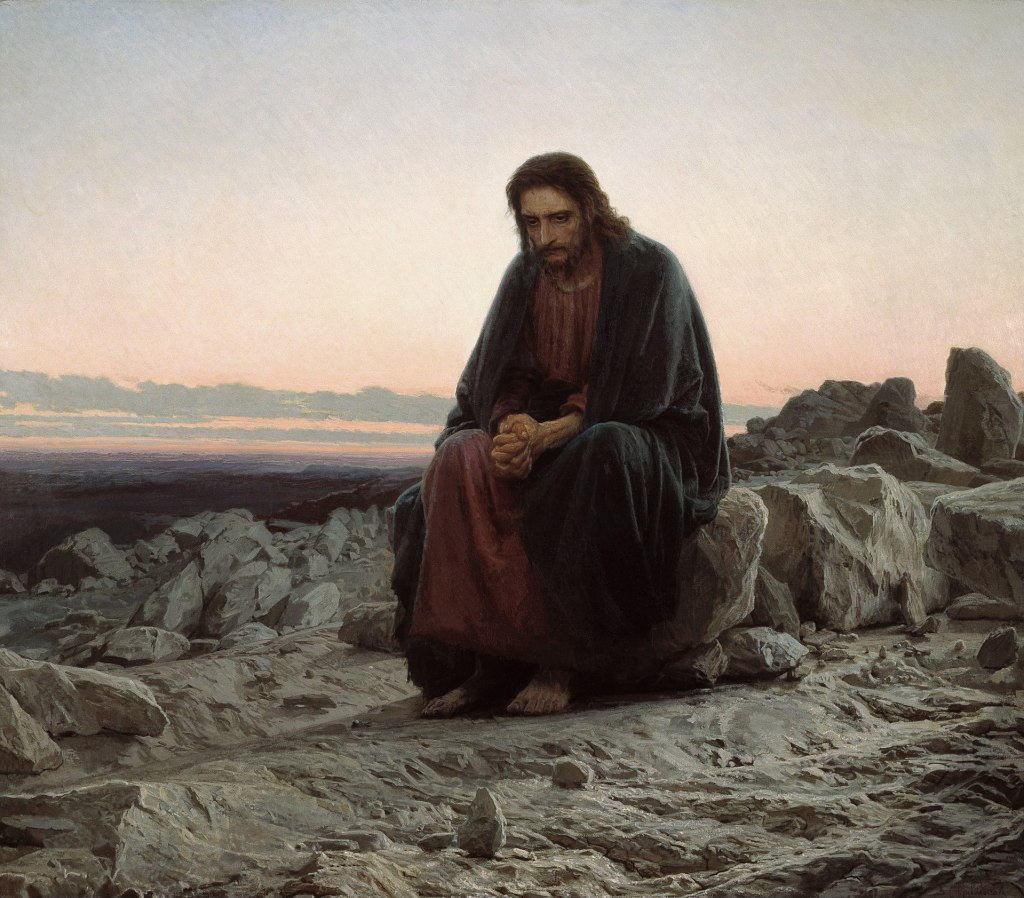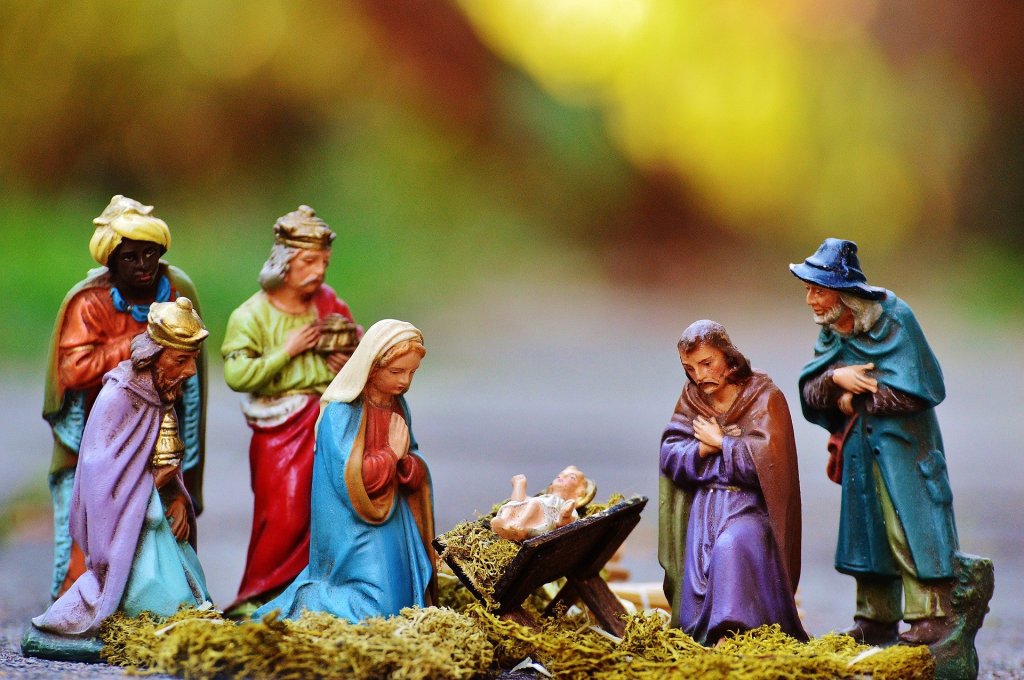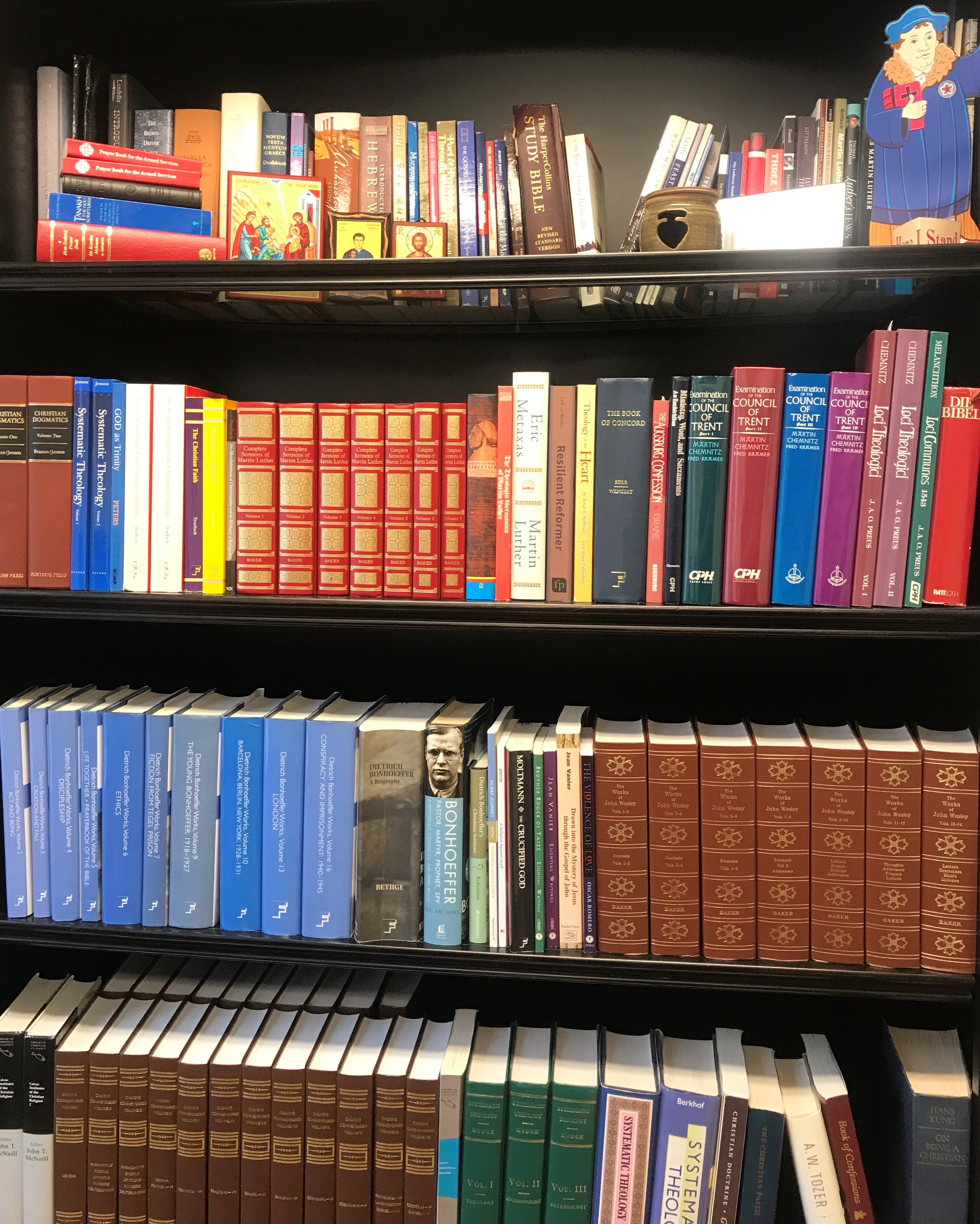
This Christmas sermon inspired by the popular pickle ornament was preached on Luke 2:1-20 at Christ Lutheran Church (Fredericksburg, VA) on Christmas Eve, December 24, 2023. You can also find a recording of this post at my 2 Penny Blog Podcast.
Sadly, there is no children’s message tonight, but we are all Children of God, and this is Christmas Eve, so I have something to show you. [Displaying pickle Christmas ornament.] Can anyone tell me what this is? —- That’s right, it is a pickle ornament, but in this case, it has a pickle flavored gummy candy inside. (Yum, right?) As I shopped for gifts this year, both in Walmart and Target, I discovered versions of this tasty “gift” inspired by the popular Christmas ornament – the pickle.
Now, there are several different origin stories attributed to the tradition of hanging a pickle on one’s tree, including one claiming an origination in Germany. This has been largely discounted by those who study such things, and it is now thought to be a German-American tradition created in the late 19th century – perhaps during the Civil War – right here in the US. Yet however it started, the idea remains that on Christmas morning, the first person to find the pickle on the tree will receive an extra present from Santa Claus or (they say) you will have a year of good fortune ahead.
In any case, seeing this pickle candy ornament got me thinking. It has a sour and sweet taste. Some will like it. For others, it might be hard to swallow. And in that tension – stick with me now – we might just have a perfect allegory for Christmas. You see, the story of Christmas is not really one of just lights, triumphant song, and gifts. We celebrate something much more complex. The story of Jesus is both sweet and sour, joyous and sad, easy for some to hold on to and hard for others to dare hope in.
When we look closely at the story itself, when we ponder it perhaps as Mary and Joseph truly experienced it, we witness a couple who had to accept the impossible – a virgin birth. They did so at the risk of accusations of sins such as adultery. This could make Joseph appear the cuckolded fiancé to his peers or one who took advantage of poor, young Mary, thus he would dishonored, a pariah, in an honor-based society. Worse, it perhaps could have resulted in Mary’s stoning for adultery – for a relationship outside of marriage was deemed a reason for death. Who among their family, friends and neighbors would believe such a crazy story as a virgin birth? Despite the risks, they accepted their fate. They trusted God, and therefore, both Mary and Joseph said yes to God.
Then, they faced another challenge – that of the census and its associated taxes. They had to travel to Joseph’s ancestral, tribal home of Bethlehem. They embarked on what was likely a four to seven day journey over about 90-miles. Remember, there were no paved roads, cars, trains, planes, nor were there rest-stops along the way.[i] Lyft and Uber were not options. They traveled on rocky, dirty, dusty paths. They traveled through a land under military occupation by the Romans, who could sometimes randomly be bullies to the native peoples. Not only that, Mary and Joseph also faced the very common risk of rebels and robbers harassing them as they traveled as well.
And let us not forget that Mary traveled even as Jesus’ birth was imminent. She was in her third trimester. If Joseph cared about Mary and the baby, the pace would have likely been slower with many stops for the bathroom, rest, and food. So, some specuilate that the trip might have taken a week traveling at the less than the rocket pace of about 2-mph.[ii] Despite facing many challenges in trusting in the great promise of Jesus, if not experiencing very real fear at the political and religious threats around them, both Mary and Joseph continued to say yes to God. They stepped out bravely in faith, for God had promised to be with them on their journey.
And once they arrived, more challenges appeared. There was no room at the inn. This small, backwater village of Bethlehem did not seem to have the capacity for all those who returned to be counted. They found themselves instead in a stable. Archeology and historical studies in the area indicate these stables were often more like caves. They offered the smallest amount of protection and comfort. Yes, the newborn king was not yet widely celebrated. He was laid somewhat quietly in a manger…a trough for animals, surrounded by noisy animals and filth. No, there were no robes or crowns for Jesus. Luke reports he was wrapped in bands or strips of cloth – essentially “wrapping” Jesus tightly…swaddling him…in what meager things they had.
There’s a common and ancient Christian belief that being born in this cave and wearing his swaddling clothes foreshadow Jesus’ future burial in a stone tomb. As cute as Jesus must have been, as warm as the loved shared between parents and child could ever be, we should not forget why our Messiah came. This innocent baby, born without sin, would be hated by many, find no roof to call his home for the last years of his life, and he would ultimately suffer and die for our sake. (Thus, you will often see Eastern Orthodox icons and ancient European art shockingly portraying Jesus as an infant wrapped tightly within his burial cloth.)
Even as Jesus started his life among us, scripture suggests he and his family were poor. They had no finery. And yet, again, Mary and Joseph made do with what they had. They trusted God to supply their every need, and they shared what they had including all their love with Jesus. Yes, they trusted God with their lives, and despite the many threats and challenges, they sought to live in expectation and hope. (Of course, this doesn’t mean they never cried, or suffered, or felt fear. They were human after all, but the power of such times did not control them. They knew they were in God’s loving hands, and that truth helped them to act free of fear to do the right thing – as that same truth might do for us.)
So, we see that the story of the nativity is in a great part one of threat, struggle, poverty, and suffering…There’s a sourness to it. Our modern sensibilities might not like it, but that is the way it was. That’s the way our lives can be today in part. We might not want to think about the hard things that come with life. We probably prefer the happy, but Jesus came to share our lives fully – even the bad parts, including death – even as he remained our God. And Mary and Joseph? This was a couple who likely experienced much joy, but they also knew what it meant to be a human in a very fallen and unfair world. They, my friends, as great as they were, were much like us.
However, before we lose hope, remember that there is much sweetness in this story too. There proves much reason for joy. For Jesus came as Immanuel, God with us. Jesus has come to ultimately save us from harm and every evil – even our own struggle with sin. And we can also see that Mary and Joseph’s own love and faith sustained them – much as such faithful, loving relationships with others can help empower and sustain us. Mary and Joseph proved stronger due to these social bonds, and so can we.
And we learn as the Gospel unfolds that many others who are oppressed, forgotten, alone, sick or suffering – perhaps again people like us – came to see Jesus as he truly is over time…see him as Mary and Joseph did as the Holy Spirit opens eyes, minds, and hearts. Jesus is not you average baby. He is the Messiah, our Savior, our Redeemer, our way to forgiveness, joy, and everlasting life…He’s meant to be our everything. And because of Jesus’ call for us to be one, these newly enlightened ones sought to be one no matter what they have done or failed to do, and they invited others to be in relationship with Jesus – as we should strive to do.
If that wasn’t enough, the angels remind us of the eternal import of this baby’s birth as they sing, “Glory to God in the highest heaven, and on earth peace to those on whom his favor rests.” We can’t trust our feelings. We cannot look to our situation or the world for a final clue. No, God loves us so much, God comes to us…as one of the most vulnerable among us…a baby…and angels (God’s messengers) point the way. Our Father in Heaven declares that it is upon us that his favor rests…us! Can you believe it? God in Jesus has come to us and for us. Wow!
The world can seem so daunting at times, perhaps even against us, but it is at Martin Luther observed so long ago now, “The incarnation is proof that God is not against us.” No, as bad as life can get, God always loves us and promises a future filled with hope ahead of us. God comes to us in our need over and over again. Is it any wonder that the shepherds left amazed, and Mary treasured these mysteries and pondered them? There is so much sour in our world. It can be hard to believe that good exists, never mind believe that the baby laying at her breast was God.
Faith is hard. Trusting is a risk. And so sometimes as a human as I face difficulties, I just want to spit all the sour out; throw up my hands and walk away. Even as Advent started, as many of you know, I was reminded of the sting of death as someone incredibly important to me died. And many here have faced their own losses, disappointments, negative diagnoses, financial problems, perhaps even worse this past year. Each of us has a unique story, but I know we are all human in a broken world. Even with faith, life is hard. The imperfections of our world and our life are always present. They remain almost easier to identify than our blessings. They can capture our attention and hold us hostage. Much as our sin can do, our problems might also bind and blind us.
In response, God’s messengers again shout for our attention, “in the town of David a Savior has been born to you,”…for you. In some ways, Christmas seems most especially for the sad ones among us…Those of us walking through a “Bleak Midwinter” can see a light beckoning us on, warming our hearts, and calling us toward trust.[iii] Like Mary and Joseph, understanding that God is Love, a Love that has and will continue to reach out to us, we can seek to trust the promises of God to be with us, and for us, even if we must do so through tears at times.
Thus, no matter who we are or our situations, we, too, can step out in faith as Mary and Joseph once did. Like the shepherds, we might not fully understand, we might struggle to trust, but we can seek this hope we have heard testified to us. We can try to share our experience, strength, and hope with others. For in seeking Jesus with the eyes of faith, we will find that Jesus is already and always will be reaching out to us before we even recognize him – much as he came unnoticed by most of the world on that first Christmas Eve.
I, for one, think we need to both notice his birth and look for Jesus in our lives each day. As a young adult from the Slovak Republic reminded me through a meditation she shared while I faced my own grief, “When we are feeling hopeless, we are not facing the God that is giving us hope, [instead] we are facing the world that is giving us these hopeless feelings.”[iv] In effect, we are believing in the power of the world more than God’s power. We are in a way worshipping the world instead of God, giving it power over our lives. Instead, we have the choice to turn to our God and live.
And so, in both good times and bad, God calls us back to the manger – to take another look. Amidst the sour of this world, the sweet cries of Jesus lying in the manger were calling us by name before we were even born; imploring us to trust in him today and always. Times might be hard, we might feel like we are in a pickle (you knew I had to go there), but through that baby in a manger, we always have access to a hope we can concretely hold onto. Jesus is here. God became human in the flesh. Heaven has broken into our world. In this, we can rejoice. We might only get a foretaste of this glory for now, but life – thanks to Jesus and his promises – remains very sweet indeed. Amen.
[i] https://aleteia.org/2018/12/18/a-feast-no-longer-celebrated-invites-us-deeper-into-the-bethlehem-journey/
[ii] Gordon College. (December 18, 2020) “Five things you didn’t know about the Christmas story.” https://stories.gordon.edu/5-things-you-didnt-know-about-the-christmas-story
[iii] See Condon, S. (December 17, 2023). Put the sad back in Christmas: Enough with the forced holly jolly. https://mbird.com/holidays/christmas/put-the-sad-back-in-christmas/
[iv] Eva Chalupkova. Lutheran World Federation, Facebook Reel dated December 19, 2023.
Unless otherwise indicated, all scripture quotations for this post are from the New Revised Standard Version Updated Edition (NRSVue) translation.
© 2023 The Rev. Louis Florio. All content not held under another’s copyright may not be used without permission of the author.









